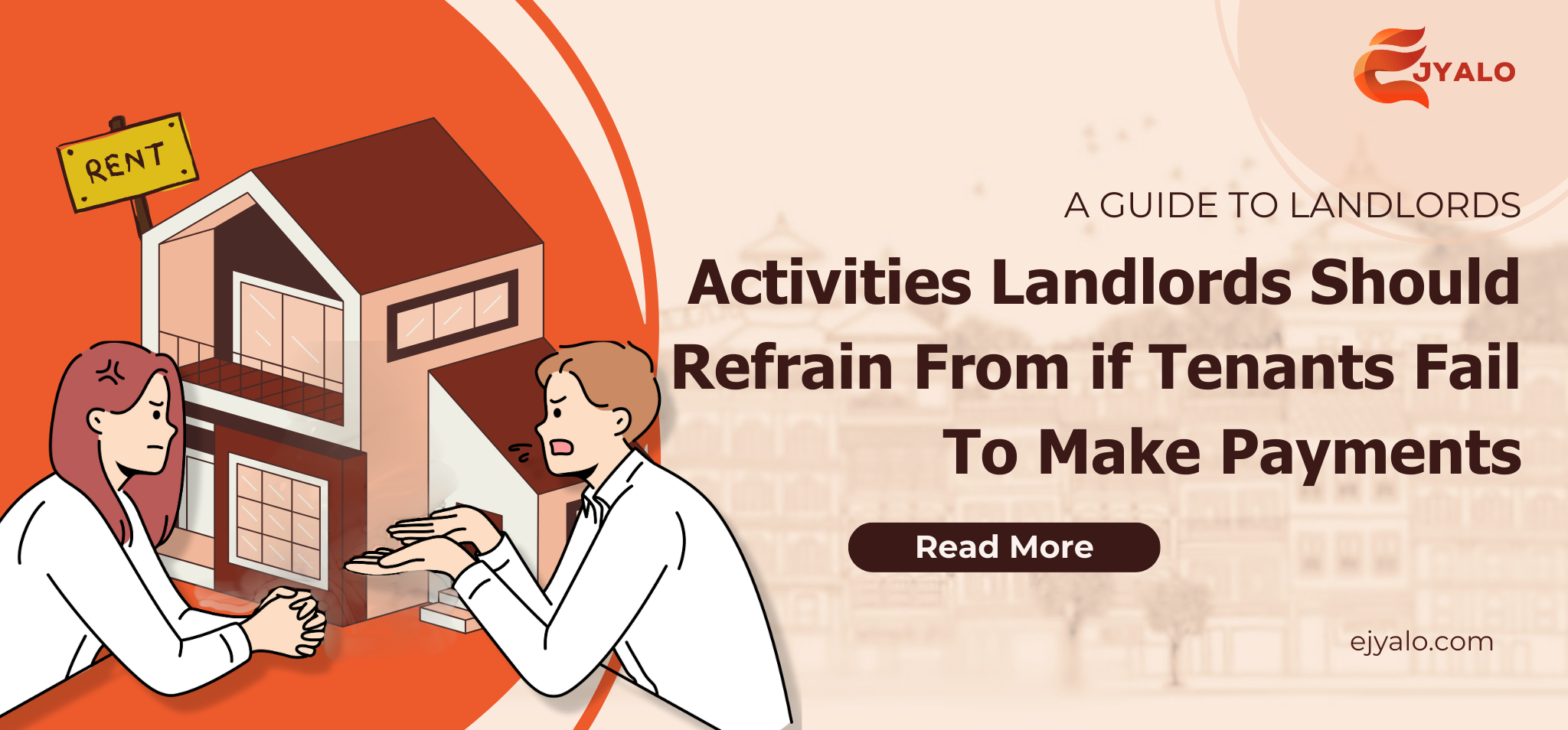
Blog detail
What not to do as a landlord when your tenant skips payment

It is not easy to be a landlord in Nepal; one has to handle and deal with various types of tenants, from easy-going to rigid.
If a tenant stops paying rent in time, it causes frustration and distress to the homeowners. Taking an action out of emotion can cause more harm than good; it leads to legal trouble and financial loss. Thus, the landlord must be aware of what not to do when tenants are not making timely payments.
In this blog, we will dive into the activities every landlord should avoid when dealing with non-paying tenants.
Do not evict the tenant without following legal procedures.
If the tenant is unable to pay the rent, the landlord should not forcefully evict them. If evicted, the tenant can file a case against the homeowner. Hence, the homeowner can face penalties.
What to do: Landlords have to make sure the eviction process goes through the standard legal process, i.e., official notice → filing a complaint (if needed)→ getting court orders.
Do not lock the tenant out or remove their belongings.
Out of frustration, landlords may lock the flat/room or remove the tenant’s belongings. Sadly, these activities are illegal. If landlords put a latch on the flat/room or throw the belongings away, they can be charged with harassment and property violation.
What to do: Let the tenants stay; proceed with the legal process.
Do not disconnect water, electricity, or other essential services.
Another tactic of landlords to force payment from tenants is to cut off electricity or water. Such an act is illegal; landlords cannot stop essential services until the tenant is legally evicted. Disturbing the utility supply of tenants can result in penalties or compensation claims by tenants.
What to do: Wait till the tenant pays or gets evicted legally.
Do not harass, threaten, or intimidate the tenant.
As a landlord relying on rental income, watching the tenants stay in your property without paying can make you extremely agitated. This could lead you to harass the tenant. The tenants can claim harassment, which can damage the landlord’s reputation and, in the long run, it can weaken the legal case if the matter reaches court.
What to do: Maintain calm and professional communication with tenants.
Do not rent the property to another person before the eviction is settled.
Landlords want to get rid of a non-paying tenant and get a paying tenant. However, they should not rent their property to someone else before the current tenant is officially evicted. The existing tenant still has legal rights over the property. Doing this can create major legal complications and disputes.
What to do: Wait till the tenant pays or gets evicted legally.
Do not bypass local authorities when dealing with absconding tenants.
If the tenant runs away without paying rent, homeowners can't just wait. Why? The landlord may not be receiving any rental income, but the local authority assumes that they are receiving the payment monthly. Thus, the landlord has to pay rental tax on that amount, even without receiving any real income.
What to do: Inform the local police or authorities immediately.
Do not ignore the need for proper documentation and notice.
Many landlords in Nepal make verbal rent agreements, especially when renting property/flats for individuals or families. Some may forget to give proper notice when tenants don’t pay. Without written agreements, notices, and payment records, homeowners will not have strong proof in court if disputes arise.
What to do: Have formal agreement with tenants.
Final Thoughts
When tenants don’t pay rent, landlords should avoid evicting the renters without a legal process, locking them out, cutting off water or electricity, or threatening them. If landlords take any of the above actions, the tenants can claim harassment or illegal eviction. This can make the landlord face fines, legal penalties, compensation, criminal charges, and mental stress.
Instead, landlords should follow proper legal eviction procedures, keep clear documentation, communicate calmly and professionally, and inform local authorities if tenants abscond. The best way to stay protected is to have a rental contract. A detailed rental contract mentions rules, payments, and actions in case of non-payment. Such contracts make the landlords legally safe and stress-free.
eJyalo has prepared a detailed rental contract for Nepalese landlords. Simply download the rental contract template and consider it as a Rental Agreement. The signed contract, between the homeowner and renter, immunizes landlords against the ‘injustice’ claims of the tenants.


